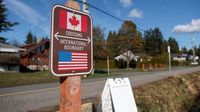In February 2025, the Canadian housing market experienced a notable decline in both resales and new home starts, a trend attributed to growing economic uncertainty surrounding an emerging trade conflict with the United States. According to reports from TD Economics, existing home sales dropped nearly nine percent month-over-month, marking the steepest decline since May 2022, when high inflation and rapidly rising interest rates significantly impacted demand.
The reports also highlighted that new listings in February surged by nearly 13 percent compared to January, yet prices fell by approximately four percent. This downturn in pricing was widespread across most provinces, with Saskatchewan and Manitoba standing out as exceptions, maintaining their status as some of the most affordable markets in the nation.
On the new construction front, new home starts in Canada fell by four percent from January to February, with the multi-family sector experiencing the most significant drop at six percent. Single-family home starts also saw a slight decrease of one percent month-over-month. However, Alberta and Saskatchewan bucked the trend, showing increased activity in new home construction. Ontario also reported a slight uptick in new home starts, although this came after historically low levels of activity.
Overall, the new homes activity in February was five percent lower than the average seen in the fourth quarter of 2024, indicating a troubling trend for the Canadian housing market. Should this decline persist, experts warn that the Canadian economy could face additional downward pressure, especially given the rising construction costs and slower population growth.
In parallel to these economic developments, Canada has also updated its travel guidelines for Canadians visiting the United States. On March 21, 2025, the Canadian government announced a new registration requirement for Canadians who plan to stay in the U.S. for more than 30 days, effective April 11, 2025. This rule stems from a Trump-era executive order aimed at enforcing existing immigration laws and mandates that travelers register with U.S. Citizenship and Immigration Services (USCIS).
The updated guidance specifies that all foreign nationals, including Canadians, who remain in the U.S. for 30 days or longer must register. This includes a requirement for registration and, in some cases, fingerprinting. According to the USCIS, the law applies to all aliens 14 years of age or older who were not registered and fingerprinted when applying for a U.S. visa.
“Failure to comply with the registration requirement could result in penalties, fines, and misdemeanor prosecution,” the guidance warns, directing travelers to the USCIS website for more detailed information. Parents and legal guardians are advised to ensure that children under 14 are registered as well.
Most Canadians, however, will not need to provide fingerprints under this new requirement. The rule has not been consistently enforced in the past, leading to confusion among travelers. This update comes amid rising tensions between the U.S. and Canada, particularly following former President Donald Trump’s fluctuating trade policies and controversial remarks about potentially making Canada the 51st state.
As the Canadian housing market grapples with these economic pressures, the new travel regulations add another layer of complexity for Canadians traveling to the United States. With the potential for a trade war looming, experts suggest that housing demand may be further affected, underscoring the interconnectedness of economic policies and real estate markets.
In summary, February 2025 marked a significant downturn for the Canadian housing sector, with both existing home sales and new constructions declining amid economic uncertainty. Simultaneously, new travel regulations for Canadians heading to the U.S. are set to take effect, reflecting the ongoing complexities in U.S.-Canada relations. As these developments unfold, the implications for both the housing market and international travel remain to be seen.






